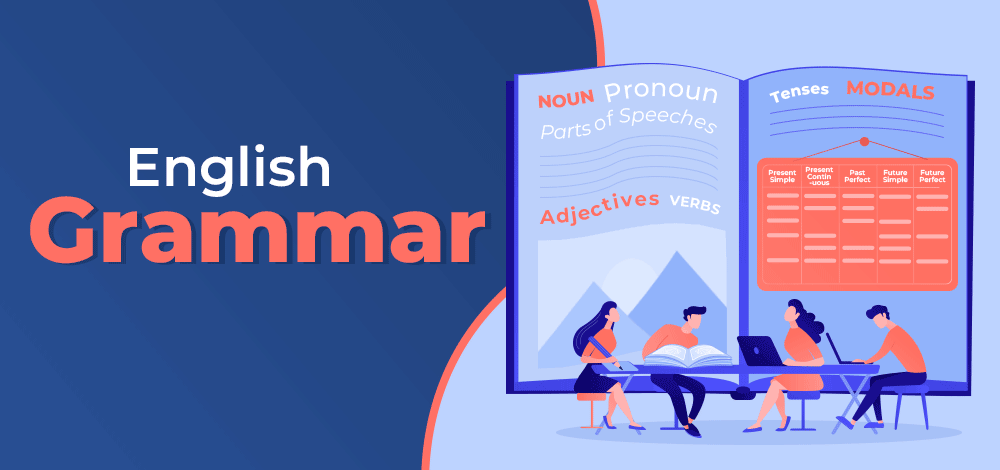Advanced Grammar Topics

About Course
✅ 1. Noun Clauses
🔹 Definition:
A noun clause is a dependent clause that acts as a noun (subject, object, or complement) in a sentence.
🔹 Structure:
Usually begins with that, what, whatever, who, whom, whoever, whomever, whether, if, how, why, when, where.
🔹 Examples:
-
What she said was surprising. (subject)
-
I don’t know if he will come. (object)
-
The truth is that he lied. (complement)
🔹 Use:
Noun clauses often follow reporting verbs (say, know, believe) or appear as the subject/object in formal writing or speech.
✅ 2. Adjective Clauses (Relative Clauses)
🔹 Definition:
An adjective clause (or relative clause) describes a noun and begins with a relative pronoun (who, whom, whose, which, that) or a relative adverb (where, when, why).
🔹 Types:
-
Defining: Essential to identify the noun.
-
Non-defining: Adds extra info, usually set off with commas.
🔹 Examples:
-
The woman who lives next door is a chef. (defining)
-
My car, which I bought last year, is very fast. (non-defining)
🔹 Tip:
Never use “that” in non-defining clauses.
✅ 3. Adverbial Clauses
🔹 Definition:
Adverbial clauses modify a verb, adjective, or another clause. They express time, reason, condition, contrast, purpose, concession, etc.
🔹 Common Subordinators:
because, although, while, if, unless, as soon as, even though, so that, since
🔹 Examples:
-
Because he was late, he missed the meeting. (reason)
-
I’ll come if I have time. (condition)
✅ 4. Subjunctive Mood
🔹 Definition:
Used to express wishes, suggestions, demands, or unreal/hypothetical situations.
🔹 Common after verbs:
suggest, insist, recommend, demand, wish, if
🔹 Forms:
-
Base verb after certain verbs:
I suggest that he go now. -
Were used for unreal present:
If I were you, I’d be careful.
🔹 Examples:
-
I wish I were taller.
-
The teacher insisted that she be on time.
✅ 5. Inversion and Emphasis
🔹 Definition:
Reversing the usual word order to emphasize meaning or add formality, especially in written or literary English.
🔹 Common Patterns:
-
Negative adverb + auxiliary + subject + main verb
🔹 Examples:
-
Rarely have I seen such beauty.
-
Not only did he win, but he also broke the record.
🔹 Use:
After adverbs like never, seldom, hardly, barely, scarcely, no sooner, not only.
✅ 6. Cleft Sentences
🔹 Definition:
A cleft sentence divides a sentence into two parts to emphasize a specific element.
🔹 Types:
-
It-cleft: It was John who helped me.
-
Wh-cleft: What I need is some rest.
🔹 Purpose:
Used in spoken and formal written English for contrast and focus.
✅ 7. Advanced Tense Usage
🔹 Future Perfect Tense:
-
Describes an action completed before a point in the future.
By 2026, she will have completed her degree.
🔹 Future Perfect Continuous:
-
Describes the duration of an action until a point in the future.
By July, I will have been working here for 5 years.
🔹 Past Perfect Continuous:
-
Emphasizes the duration of a past action before another past action.
He had been studying for hours before the exam.
✅ 8. Reported Speech (Advanced)
🔹 Definition:
Describes what someone said without quoting them directly, often requiring tense shift and pronoun/time changes.
🔹 Examples:
-
Direct: “I might be late,” she said.
Reported: She said she might be late. -
Direct: “I should have called,” he said.
Reported: He said he should have called.
🔹 Tip:
Modal verbs like might, should, would, could often remain the same.
✅ 9. Gerunds vs. Infinitives – Advanced Meaning Shifts
🔹 Definitions:
-
Gerund = verb + ing, used as a noun
-
Infinitive = to + base verb
🔹 Verbs that change meaning:
-
Remember doing = memory of a past action
I remember locking the door. -
Remember to do = action not yet done
Remember to lock the door. -
Stop doing = quit an activity
He stopped smoking. -
Stop to do = stop one action to do another
He stopped to smoke.
✅ 10. Ellipsis and Substitution
🔹 Ellipsis:
Leaving out words that are understood from context.
-
She went to the store and I [went] too.
-
I can play the guitar. She can [play the guitar] too.
🔹 Substitution:
Replacing a word or phrase with a shorter one (like do, so, one).
-
If you don’t like pizza, I do.
-
She said she would call, and she did.
📌 Summary Table
| Topic | Key Function | Example |
|---|---|---|
| Noun Clauses | Acts as noun (subject/object) | I know that she’s coming. |
| Adjective Clauses | Describes a noun | The book that I read was amazing. |
| Adverbial Clauses | Explains time, reason, condition | We left because it was late. |
| Subjunctive Mood | Expresses wishes, demands, hypotheticals | I suggest that she go. |
| Inversion | Emphasis/formality | Never have I seen such chaos. |
| Cleft Sentences | Shifts focus/emphasis | It was Sarah who helped me. |
| Future Perfect | Action completed before future time | She will have arrived by then. |
| Reported Speech (Advanced) | Reports past speech, with modals | He said he could help. |
| Gerund vs. Infinitive | Meaning changes with verb structure | I forgot to lock vs. I forgot locking. |
| Ellipsis/Substitution | Avoids repetition | I love pizza. So do I. |
Course Content
📘 Clauses and Phrases – Detailed Grammar Guide
-
📘 Clauses and Phrases – Complete Grammar Guide
📘 Reported Speech (Indirect Speech) – In-Depth Grammar Guide
📘 Advanced Verb Forms and Usage – Expanded Guide
📘 Complex Sentence Construction – Masterclass Guide
Student Ratings & Reviews

